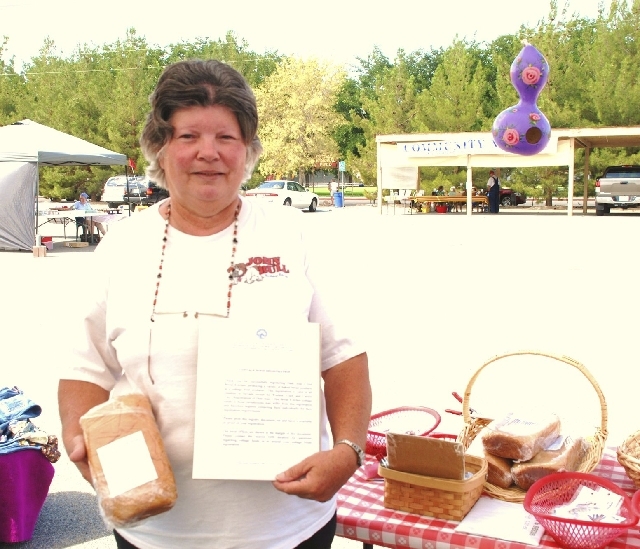UNCE offers classes on preservation, advice for Cottage Industry compliance
In May 2013, the Nevada Legislature passed and Governor Sandoval signed the cottage food bill, SB206, allowing a limited amount of certain types of non-potentially hazardous foods to be prepared from a person’s home.
These foods may only be sold in the private home of the registered person who prepared them, in farmer’s markets, flea markets, swap meets, church bazaars, garage sales and craft fairs.
A number of rules accompany the new law.
There are limitations on maximum sales, laws on who the producers can sell to and definitions to outline what ingredients are and are not acceptable.
There are labeling and packaging rules and specific rules for selling baked goods.
There are rules for the facility vendors use to produce the products as well.
Although food safety information is available at health.nv.gov for cottage food operation applicants, it is highly recommended that applicants further educate themselves about safe food handling principles and practices.
Before producers head out to the local farmer’s market or swap meet they must first register the cottage food operation with the state health authority.
The person who manages whatever venue producers choose to sell their products is responsible for checking for permits, licenses, insurance and a host of other regulations.
If you have any questions contact the Environmental Health Office nearest to you through http://health.nv.gov/FaR_Locations.htm.
The requirements are intimidating but University of Nevada Extension coordinator Debby Woodland said, “It’s a good opportunity to make extra money.”
UNCE will offer a series of classes which applies to safety regulations for potential participants in the cottage industry.
Woodland said the classes are beneficial to home gardeners and power shoppers, too.
The series titled, “Food Preservation 101” will be taught from 9 a.m. to 1 p.m. beginning Sept. 12. There are five classes total, to be conducted Thursday, Sept. 12 and 19; Oct. 17 and 24; and Nov. 7.
The classes will cover boiling water bath canning and attendees will get hands-on experience making spicy ketchup and no-meat spaghetti sauce.
There will be a dehydrating class where participants will learn what low-moisture vegetables and fruits work best.
The third class will cover pressure canning. Foods that are low-acid must be preserved in a pressure canner and the class will discuss canning fruits, vegetables and meat. Woodland said participants will get the opportunity to make chili con carne.
Jams and jellies are next on the schedule and the classes will end with basic pickling.
Woodland said, “We’ll be making a corn relish and pickling beets. We will offer a class in late spring or early summer for making pickles with cucumbers. Right now isn’t a good time of year because you need them to be crisp and very fresh.”
The classes don’t just fit the gardener. People who would like to shop for produce and meats when they are on sale can be at a loss when it comes to storing the excess. These classes will allow consumers to save money in the long run.
The food dehydration class fee is $15, all other classes are $18 each.
The space for these classes is very limited and registration is a must. Call 727-5532 to reserve your space.
















